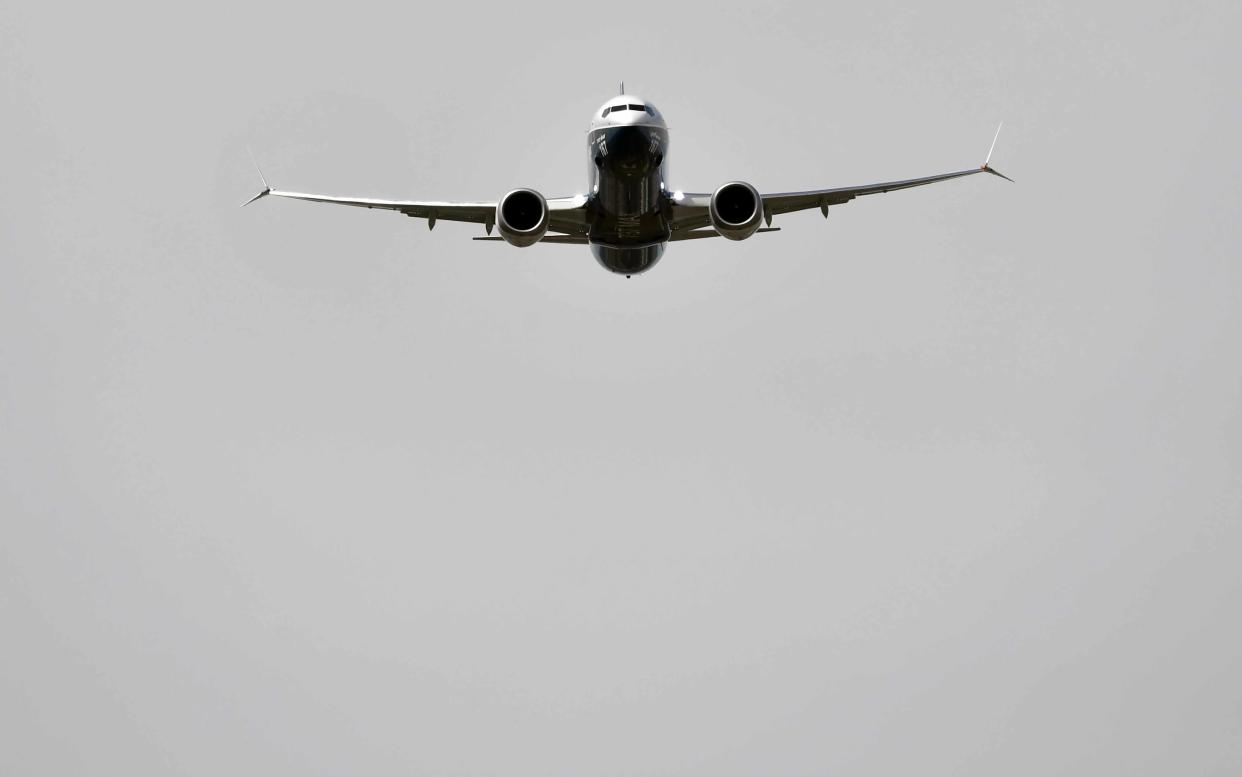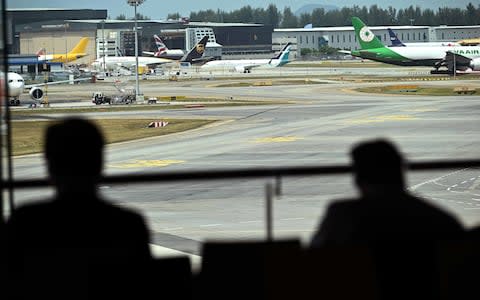Pilots complained several times about 737 MAX problems before latest crash

Pilots from around the world have logged numerous complaints and concerns over the Boeing 737 Max aircraft in the last 15 months, it has emerged.
The reports found on an aviation safety reporting database set up by Nasa highlight perceived problems with the jet’s new anti-stall technology.
The update on the old 737 design is a system intended to protect the aircraft from stalling by forcing the nose of the plane down in certain circumstances. However, it is now at the centre of questions regarding the airworthiness of the 737 MAX in the wake of its second fatal crash in five months.
In one entry in Aviation Safety Reporting System (ASRS), which allows pilots to record incidents anonymously, a captain described how the 737 MAX 8 began descending after take-off and issued an audible “Don’t sink, don’t sink!” warning, indicating a loss of altitude.
“I immediately disconnected autopilot and resumed climb,” the pilot said. “With the concerns with the MAX 8 nose-down stuff, we... thought it was appropriate to bring it to your attention.”
Another from November last year told how the US-made aircraft “pitched nose down” within “two to three seconds” of the autopilot being turned on. The captain immediately disconnected the autopilot and pitched into a climb.
“The remainder of the flight was uneventful. We discussed the departure at length and I reviewed in my mind our automation setup and flight profile but can't think of any reason the aircraft would pitch nose down so aggressively.”
The 737 MAX - of which there are more than 350 in service - is an updated version of the popular 737 model and has only been in the sky since 2017. It has, however, been billed as the short-haul aircraft of the future.
But concerns this week in the wake of a plane crash in Ethiopia on Sunday that left 157 dead has led to aviation authorities in Europe, China, Australia and beyond banning the plane from their airspace. Boeing and the Federal Aviation Administration (FAA) in the US has maintained the aircraft is safe.
In more than one report logged on the ASRS website, pilots spoke of unfamiliarity with the aircraft and confusion over some of its controls.
One, flying the aircraft for the first time, having been told so on the way to the airport, wrote: “Unfamiliarity with flight deck displays led to confusion about display annunciations and switch function. The Flight Manual does not address at least one annunciation, or the controls for the display - or if it does, neither pilot could find the explanation.
“I have spent literally days looking for an explanation, could not find one, and that is why I wrote this report. It shouldn't be this hard to figure out what I'm looking at.”
Another, referencing confusion over the new anti-stall technology, said: “I am left to wonder: what else don't I know? The Flight Manual is inadequate and almost criminally insufficient.”
A third said: “My post-flight evaluation is that we lacked the knowledge to operate the aircraft in all weather and aircraft states safely.”

Boeing’s latest statement said safety is it number one priority and that it has “full confidence” in the safety of the 737 MAX, adding: “We understand that regulatory agencies and customers have made decisions that they believe are most appropriate for home markets.
“We’ll continue to engage with them to ensure they have the information needed to have confidence in operating their fleets.”
The Seattle-based company has said that it has been developing a “flight control software enhancement” for the plane, believed to come into use in April.
Saj Ahmad, chief analyst at StrategicAero Research, said it was too early to say the plane is unsafe.
“It's premature to call the MAX unsafe given the FAA's reluctance to ground it - further, not one of the agencies the world over that have grounded the 737 MAX has provided any meaningful technical reasons behind the decision to ground the type,” he said.
“That to me is concerning because that highlights a disconnect between aviation regulators who should all be singing from the same hymn sheet.”
He said there is “no evidence thus far that the two MAX crashes are even related”.

